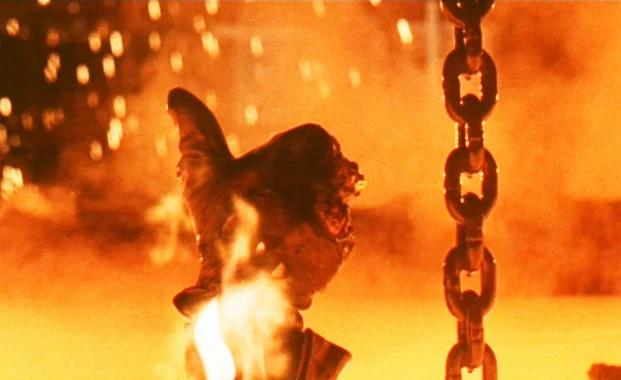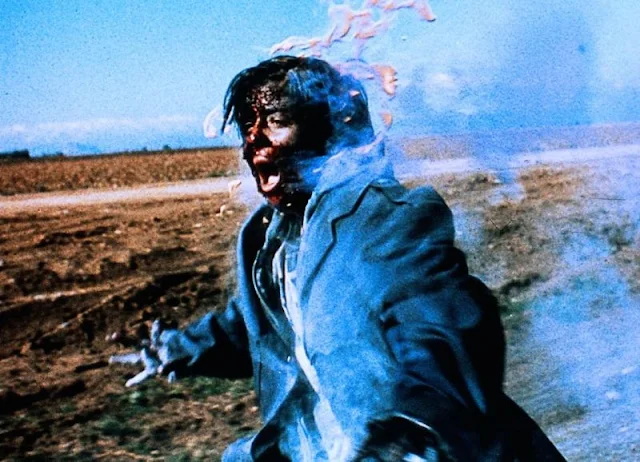A blog formerly known as Bookishness / By Charles Matthews
"Dazzled by so many and such marvelous inventions, the people of Macondo ... became indignant over the living images that the prosperous merchant Bruno Crespi projected in the theater with the lion-head ticket windows, for a character who had died and was buried in one film and for whose misfortune tears had been shed would reappear alive and transformed into an Arab in the next one. The audience, who had paid two cents apiece to share the difficulties of the actors, would not tolerate that outlandish fraud and they broke up the seats. The mayor, at the urging of Bruno Crespi, explained in a proclamation that the cinema was a machine of illusions that did not merit the emotional outbursts of the audience. With that discouraging explanation many ... decided not to return to the movies, considering that they already had too many troubles of their own to weep over the acted-out misfortunes of imaginary beings."--Gabriel García Márquez, One Hundred Years of Solitude
Search This Blog
Showing posts with label Adam Greenberg. Show all posts
Showing posts with label Adam Greenberg. Show all posts
Monday, April 27, 2020
Terminator 2: Judgment Day (James Cameron, 1991)
Cast: Arnold Schwarzenegger, Linda Hamilton, Edward Furlong, Robert Patrick, Joe Morton, Earl Boen, S. Epatha Merkerson, Castulo Guerra, Jenette Goldstein, Xander Berkeley, Danny Cooksey. Screenplay: James Cameron, William Wisher. Cinematography: Adam Greenberg. Production design: Joseph C. Nemec III. Film editing: Conrad Buff IV, Mark Goldblatt, Richard A. Harris. Music: Brad Fiedel.
In 1983, President Ronald Reagan announced his support of the Strategic Defense Initiative, a complex system that would use satellites to detect the launch of nuclear missiles and then destroy them in mid-flight with automatically launched anti-ballistic missiles. Critics of SDI called it unrealistic, fanciful, and ultimately destablizing for international peace. It became known by a nickname familiar from the movies: "star wars." The following year, James Cameron released a film called The Terminator in which a cyborg arrived from the future to make sure that a potential leader of a rebellion against his fellow cyborgs and other creatures of artificial intelligence never gets born. It wasn't immediately clear to most people at the time that Cameron's film contained a sly reference to what many people feared might be a consequence of Reagan's SDI: out-of-control automated weaponry. By 1991, when Cameron released the sequel to that film, Terminator 2: Judgment Day, that reference had become explicit: The "Skynet" of the sequel is clearly a fantasized version of SDI, in which the AI creations began a war against humans with a nuclear strike that killed three billion people in 1997. Today, that historical subtext is probably lost on most viewers of the movie, as Reagan's "star wars" has faded from memory, except in some think tanks and Pentagon brainstorming sessions. But to those of us who lived through the Reagan years, the reference in the movie was more than just subtext. There are some actual digs at supporters of SDI in the film, as when Miles Dyson (Joe Morton), the scientist behind Skynet, attempts to defend technological research and John Connor (Edward Furlong) retorts that the kind of research that proceeds without considering the consequences produced the hydrogen bomb. One of the most ardent proponents of SDI, who sold Reagan on the idea, was Edward Teller, the physicist who became known as "the father of the hydrogen bomb," a title he never fully rejected. But even without the historical underpinnings, Terminator 2 is a kind of landmark in popular entertainment: an exciting concoction of violence and special effects, with old-fashioned touches of humanity and wit that lots of today's CGI blockbusters no longer find necessary. Cameron never seems content just to dazzle us but to make us think and feel. If there's too much feeling in his Titanic (1997) and not enough thought in Avatar (2009), there's the right amount of both in Terminator 2.
Monday, November 25, 2019
Near Dark (Kathryn Bigelow, 1987)
Near Dark (Kathryn Bigelow, 1987)
Cast: Adrian Pasdar, Jenny Wright, Lance Henriksen, Bill Paxton, Jenette Goldstein, Tim Thomerson, Joshua John Miller, Marcie Leeds. Screenplay: Kathryn Bigelow, Eric Red. Cinematography: Adam Greenberg. Production design: Stephen Altman. Film editing: Howard E. Smith. Music: Tangerine Dream.
I didn't think I ever wanted to see another vampire movie. And after No Country for Old Men (Joel Coen, Ethan Coen, 2007) and Hell or High Water (David Mackenzie, 2016), I was feeling a little burned out on the neo-Western genre. So a film like Near Dark that combines both was a little out of my range of immediate interests. But Kathryn Bigelow's name drew me in, and it was also a chance to see a performance I had missed by one of my favorite actors, the late and very lamented Bill Paxton. I wasn't disappointed. Bigelow has a way of making even the most generic subjects interesting. She's a little like Hitchcock in her ability to keep you on edge and to create characters that make you root against your own interests. Her vampires are objectively a vicious, grungy lot, and yet you almost root for them when they're under siege, in danger of being forced into the lethal sunlight, just as you somehow sympathetically root for Hitchcock's villains like Norman Bates to get away with it. It's also a well-cast movie, with a young and very pretty Adrian Pasdar as the imperiled mortal, and Paxton doing his showboating best as the most flamboyant vampire. This was in a period when Bigelow was involved with James Cameron, so Paxton, Lance Henriksen, and Jenette Goldstein came over from the cast of his Aliens, released a year earlier and given a plug on a theater marquee in the background of one shot.
Friday, February 23, 2018
The Terminator (James Cameron, 1984)
 |
| Arnold Schwarzenegger, Brad Rearden, Bill Paxton, and Brian Thompson in The Terminator |
Sarah Connor: Linda Hamilton
Kyle Reese: Michael Biehn
Lt. Ed Traxler: Paul Winfield
Detective Hal Vukovich: Lance Henriksen
Ginger Ventura: Bess Motta
Matt Buchanan: Rick Rossovich
Dr. Peter Silberman: Earl Boen
Pawn Shop Clerk: Dick Miller
Director: James Cameron
Screenplay: James Cameron, Gale Ann Hurd
Cinematography: Adam Greenberg
Art direction: George Costello, Maria Caso
Film editing: Mark Goldblatt
Music: Brad Fiedel
Watching The Terminator a week after the school shootings in Parkland, Florida, is a different experience than it might have been, especially when the Terminator goes into a pawnshop to get his weaponry and is told by the owner, "There's a 15-day wait on the handguns, but the rifles you can take right now." Still, although the movie's promiscuous mayhem may feel a bit off at the moment, it serves its purpose. The Terminator is a film of ideas about humanity and artificial intelligence, about machismo and law and order and survival -- maybe not as much as it's a film about things blowing up, but still enough that many of us can watch it and not feel the deadening effect that some action films produce. It's also a movie whose old-fashioned special effects like stop-motion puppetry feel oddly fresh and real when contrasted with the slick computer-generated effects of most sci-fi films now -- including most of director James Cameron's later work. The performances are good, the pacing is right, there's just enough humor in the dialogue, and even the time-travel gimmickry manages to make enough sense to be plausible within the confines of its fable.
Subscribe to:
Comments (Atom)








